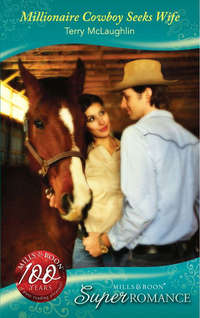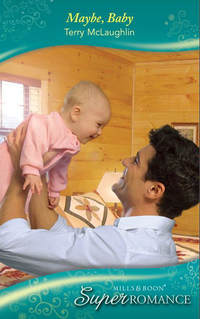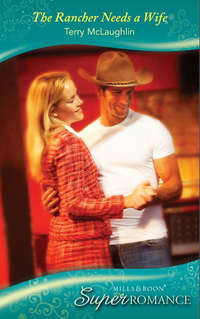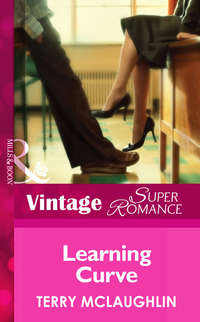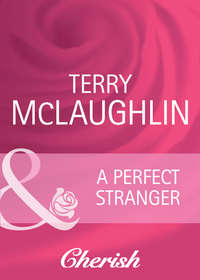
Полная версия
A Small-Town Homecoming
Denial—a daily exercise and a constant companion of late. The tamped-down disappointments and regrets, the low-grade itching and yearning for something—for anything—better than what he had, colored his existence and kept him moving in the right direction. That and the daughter waiting for him at home.
Rosie wanted him to quit smoking, and he’d do it for her. He’d do anything for her—anything within reason. She needed that from him right now, needed his reassurance as much as his steadiness. She’d lost so much lately—hell, she’d lost just about everything she had to lose during her short life. He had so much to make up to her.
He studied the thin stream of smoke curling from the cigarette. Rosie had been five when his drinking had driven his ex-wife away, and Nancy had taken their daughter with her to Oregon. He’d never forget the way Rosie had clung to his pant leg that last night, sobbing, promising to be good, promising to remember to feed her turtle if only she could stay in her room, stay in her new school with her new friends. Begging him to come with them when it was time to go.
He’d promised to feed her turtle for her. But he’d been too wrapped up in his own misery, too drunk to remember, and he’d let her pet die. His daughter’s dry-eyed acceptance of this betrayal had been the turning point. He hadn’t had a drink since the turtle’s funeral.
Now Rosie’s mom had a new man in her life, a guy who didn’t want a ten-year-old cramping his style. And since his ex had never been the kind of woman who could function for long without a man, she’d sent her daughter packing, back to her father. Just for a while, Nancy had told him, just until this new relationship settled into something permanent. In the meantime, it was Quinn’s turn to deal with Rosie.
So he’d deal.
He’d had her four months now. Four long, difficult months of figuring out a new routine, of learning how to balance the long hours on the job with the responsibilities of a full-time parent. Of watching Rosie struggling with another start in a new school and the uncertain business of making new friends. Trying to deal with him.
Four long months to decide he wanted his own new relationship to be permanent, too. He was going to keep Rosie here, with him.
He sighed and fingered the cigarette in his hand, fighting the urge to raise it to his lips for just one puff, and then a streak of scarlet roared past and slowed near the end of the block. He narrowed his eyes as a familiar BMW Z4 roadster bumped over the gap in the curb at the entrance to the construction site and edged onto a patch of rough gravel.
Tess Roussel, architect. The nominal head of this project, though they both knew she couldn’t make a move without him.
The driver-side door swung open and one long, slim, short-skirted leg stretched toward the ground. Nice. Too bad it was attached at the hip to a harpy with an agenda.
She rose, slowly, and slammed the door behind her, pausing to glare at him across the ruins. He knew her eyes were the color of bourbon and every bit as seductive, that her scent could make his mouth water and send his system into overdrive. And the fact that he’d wanted her the moment he’d set eyes on her didn’t mean spit. He’d been controlling far more serious thirsts for years.
She strode toward him on her ridiculous shoes, risking injury to one of her shapely ankles with every wobble of those skyscraper heels. The breeze off the bay tossed her short black hair across her forehead, and she lifted an elegant, long-fingered hand to brush it back into place. She wore a no-nonsense gray suit, the kind of suit a woman wore when she wanted to look like a man. The kind of suit that clung to lush, womanly curves and accentuated the fact that she was a female.
She halted in front of him and raised one of her perfectly arched brows. “Quinn.”
“Roussel.”
She lowered her gaze to his cigarette and slowly lifted it again to meet his. “Smoking on the job site?” she asked.
He brought the cigarette to his lips just to watch those whiskey-colored eyes darken with displeasure. “Against the rules?”
“Are you asking for a clarification?”
“Figured that’s why you’re here.” He squinted at her through the smoke. “To set things straight,” he said.
“Plenty of time for that later.” She slipped her hands into her jacket pockets and turned toward the bay. “It’s a great site.”
“Best in town.”
“It will be.”
She angled her face in his direction, waiting for him to comment, but he simply met and held her stare.
God, she was a looker. He’d mostly seen her in passing, striding down Main Street as if she owned the strip, or crossing those long legs on a tall stool at one of the waterfront bars. And he’d noticed the way men’s gazes followed her, tracked her, undressed her, coveted her. A real heartbreaker. A real ball-buster, too. The kind of woman who enjoyed the attention, as long as it was on her terms.
He’d never had the chance to study her like this, up close. Right now, with the sun sinking over her shoulder and setting the highlights in her hair aflame, with her sculpted chin tipped up in challenge and those thick, sooty lashes drifting low over her wide-set eyes, she was even more of a looker than he’d realized.
Her gaze settled on the six-pack nestled in a rope coil on the truck bed behind him, and her glossy red lips thinned in disapproval.
Beer for the crew, a small celebration for the big job ahead. She needn’t worry—he had no intention of joining them in the drinking part of the festivities. Not that it was any of her business. “Something bothering you?” he asked.
“Yeah.” She shifted her stance and narrowed her eyes. “Plenty.”
“Same goes.”
“Oh, I doubt that.” Her mouth turned up at the corners in a catlike smile. “I don’t think it’s the same kind of bother at all.”
He slid to the ground and moved in close, close enough to note the slight flutter of her lashes and hear the sharp and sudden intake of her breath. His blood heated with something more than the basic tension between them. In her heels, she was nearly eye to eye with him, and he wondered how she’d fit alongside him if he snaked an arm around her narrow waist and hauled her to him. “No harm in a little creative thinking,” he said.
“Is that so?”
He dropped his gaze to her mouth, testing her. Testing himself. He wanted this job, damn it. He’d just signed a contract saying he’d take it on. He wanted to earn a chunk of money so he wouldn’t have to worry about his ex’s first legal maneuver in the inevitable custody war. He wanted his daughter to be proud of the work he was doing, even if that work was going to mean long hours away from home, away from her. The last thing he needed was another battle on his hands with another woman who could pile on the guilt of his past failures.
A woman who could give him one more thing to crave.
He looked Tess straight in the eye. “Yeah.”
“All right, then.” She turned to go, tossing a wicked smile over her shoulder. “See you around, Quinn.”
He dropped the cigarette and crushed it into the ground. “I’ll be here.”
LATER THAT EVENING, after she’d changed into her most comfortable jeans, her softest designer loafers and dined on a frisée salad with her special raspberry vinaigrette dressing, Tess drove toward Driftwood. The residential area south of the town center offered a certain rustic charm, particularly where the streetlights thinned and the pavement faded to crunchy gravel roads, where lacy-branched redwoods crowded the shoreline and cast their long shadows over wave-splashed rocks. The neighborhoods she passed wore a jumble of styles, and the houses perching in the open spaces among the trees often reflected the personalities of their owners rather than the period of their construction.
Normally Tess enjoyed a trip through Driftwood at this time of night, when the amber glow of early-evening lamplight provided glimpses of prairie-style mantelpieces, paneled doors, arching doorways and coved ceilings before the home owners drew their curtains to shut out the dark. She might have enjoyed restoring one of the vintage houses in this part of town, but she’d found a place that suited her along the river, a more practical house that wouldn’t require messy repairs or put a dent in her budget making them.
Tonight she wasn’t in the mood to notice much more than the widening pothole on Daylily Lane and her own negative attitude. Her chat with Quinn had siphoned most of the joy from what was supposed to be the first triumph of her professional career.
All she’d wanted was some time alone on the site to look at the place and to know—to truly believe—that what was in her imagination was actually, finally going to appear. A few minutes to let her imagination loose, to fill that space with all the possibilities she held inside. Her very own creation, her very own miracle—hers and hers alone, for the first and last time.
Only it hadn’t been hers, because she hadn’t been alone. She’d been forced to share it with Quinn. Just as she would be forced to share every step of its creation with him for the next nine months, to maintain her vision through his interpretation and consult with him on its progress. To share the end result, too: her design, his construction.
Quinn Construction. She tightened her grip on the steering wheel. He had a lot riding on this project, too. He was rehabbing his professional reputation as well as his personal life. If he pulled off this job—the largest in the Cove at the moment—without a hitch, he’d be well on his way to establishing himself as a competent builder, not to mention banking a sizable profit.
And in order to maximize that profit, he’d want to complete the job as quickly and as cheaply as possible. Which meant they’d argue over the specs. Contractors always tried to shave their costs by changing the specs—after they’d used those same specs to draw up their bids for the project in the first place. She wanted Tidewaters to be spectacular; he’d want it to be finished.
If only he weren’t so … so … so damned attractive. Those craggy, lived-in looks, that haunted, stoic air. Thick black hair layered in unruly waves, sensuous lips above a dented chin. Yum. Even the intense gaze he aimed at her with those shockingly blue, deep-set eyes could send tiny shivers skittering up her spine at the same time it ratcheted up her annoyance. She’d always been a sucker for a bad boy, and Quinn was as bad as they came.
Beyond bad. A disaster, considering his problem with drinking and her problem with drinkers.
Besides, lusting after a business partner couldn’t be good for a working relationship, especially one that was so important to them both. Especially when that relationship threatened to be antagonistic. Although she didn’t intend to be antagonistic … not at first, anyway. She’d be generous and let him make the first wrong move.
Smiling grimly in anticipation of the coming battles, she pulled into the narrow gravel drive beside Charlie Keene’s tiny bungalow and plucked a dog biscuit from the box tucked behind her seat. Then she climbed from her car, lifting a pink bakery bag high above her head.
“Down,” she ordered the black Labrador retriever streaking across the shadowy yard. “Stay down, or you won’t get your bribe, you fur-faced shakedown artist.”
Charlie’s obnoxious pet rammed its wide black nose into her crotch before she could toss the biscuit across the yard. “Good riddance,” she muttered as the dog raced after it, and then she glanced at the muddy paw prints on her shoes with a sigh. At least the monster hadn’t left a matching set on her jeans and jacket. Charlie’s fiancé, Jack Maguire, must have been making some progress with the obedience training.
He’d certainly made some progress with Charlie’s house. As Tess strode up the narrow path toward her friend’s freshly painted forest-green front door, she noted the neatly clipped lawn and the new willow tree staked in one corner of the yard. Charlie hadn’t done much more than dump her junk in the place after she’d bought it last year, but Jack was slowly and surely turning the fixer-upper into a charming home they’d share after their wedding. Charlie had always needed a keeper, and in Jack she’d found a man who liked to keep things the way they ought to be kept.
Actually, it had been Jack who’d found Charlie. He’d arrived in the Cove nearly three months ago, investigating the area’s sand and gravel supply for his employer. Within two weeks of checking out the local situation—and meeting Charlie—he’d quit his job, made an offer to buy out her competition and slyly cornered her with a deal she couldn’t refuse: combining their two ready mix companies with a wedding. At first she’d fought him with every weapon in her arsenal, but in the end she’d agreed to a mutually beneficial business arrangement and accepted his marriage proposal.
For a man whose words tended to ramble along in a syrupy drawl, Jack Maguire could do some fast talking when it suited him.
Tess lifted the period knocker and let it fall against the hammered plate, pleased with the solid thwump of the heavy iron. The man had taste. He also had an ego the size of the Pacific, but at least that Southern-fried charm of his helped soften the most outrageous excesses.
More than she could say for the prickly contractor she’d had to deal with before dinner. Nothing soft or charming there.
Charlie opened the door. “Thought you’d never get here,” she said as she snatched the bag from Tess’s hands and tugged her inside. “Addie brought a stack of bridal magazines, and she’s making me look at pictures again. Tell her to stop, or I’m going to shoot you both right now and eat all the cookies myself.”
Tess tossed her jacket over the arm of a club chair and settled beside their friend, Addie Sutton, on the plump sofa. Addie owned a stained-glass shop a block from Tess’s office, where she was creating some fabulous windows for Tidewaters. She had more artistic talent in her dainty fingers than Tess had in her entire body, and yet Tess loved her in spite of it. Everyone loved Addie, in the same way everyone loved puppies and pizza. It was inevitable.
“Where’s Jack?” Tess asked. “I brought one of Marie-Claudette’s cookies just for him. One shaped like a big, fat mouth.”
“Baseball practice.” Addie turned a thick, glossy magazine in Tess’s direction and pointed to a photo of a model buried in clouds of white tulle and baby’s breath. “Isn’t this gorgeous?”
“Yeah, if you’ve got something to hide—like the bride and half the wedding party.”
Leave it to Addie, who could pass for a French bisque doll with her spun-gold hair and long-lashed eyes, to go for the ruffles. But anyone who knew Charlie knew she was allergic to frills. Tess took the magazine and flipped through more pages, looking for something sleek and simple. A classic gown with a touch of pizzazz or a hint of drama, just to keep things interesting. “Do we have a date yet? Or a venue?”
Charlie shrugged. “I’m working on it.”
“That’s what you said last week.” Tess paused to admire a striking bouquet of calla lilies. “You mustn’t be working very hard.”
“Don’t nag.”
“Don’t worry. I figure Maudie and Ben are double-teaming you on a daily basis.” Charlie’s mother, Maudie, had recently announced her own engagement to Ben Chandler, Geneva’s relation by marriage and a distant cousin of Tess’s. But Maudie had made it clear she wouldn’t begin planning for her own wedding until she’d seen her daughter walk down the aisle.
Tess turned the page and sighed over a picture of a dark-haired bride in an elegant sheath with a plunging back. “How about this?”
Addie craned her neck to study the shot. “It would look great … on you.”
“Yes, it would. Too bad I’m not in the market right now.” She closed the magazine with a sigh and slumped against the cushions. “I’ve got news.”
Charlie leaned a shoulder against the arched entry to her dining room. “Champagne news or beer news?”
“Beer doesn’t go with cookies.” Addie wrinkled her turned-up nose in disgust.
“Neither does champagne,” Tess said, “but hey, don’t let that stop us. If you’ve got any,” she added.
“Please.” Charlie grinned. “Jack would be insulted to hear you question the quality of his wine cellar.”
“Jack’s not here.” Tess raised one eyebrow. “And since when did he start missing out on an evening with you?”
“Since he got sucked into his own plot to prove his community spirit and volunteered to coach Little League.” Charlie straightened and headed toward the kitchen. “I’ll go get the party plastic and be right back.”
“What are we celebrating?” Addie tucked a long blond curl behind one ear. “Is this about your waterfront project? About the windows?”
Addie’s shop forever teetered on the brink of bankruptcy, but that wasn’t the only reason Tess had incorporated touches of stained glass in her design. They added a vintage detail that would help the building blend with its Victorian-era neighbors.
Charlie walked into the room carrying a bottle and a small stack of plastic cups and paper napkins. “I hear Quinn got the job.”
“So much for my big news.”
Charlie shrugged. “Small town.”
“Big mouths.” Tess took the napkins and fanned them across the coffee table. “Bigger noses. I don’t know why The Cove Press bothers competing.”
“Isn’t Quinn the contractor who left town a few years ago?” asked Addie. “Something about an accident on a job site?”
“Yeah.” Tess sighed dramatically. “But he’s back.”
“Heard his wife left him.” Addie frowned. “Heard he had a drinking problem, too.”
“Had being the important word here.” Charlie popped the cork from the bottle. “Jack likes him.”
“Jack likes everyone,” Tess pointed out. “He’s been seen buying crushed cans from the crazy guy who sells trash down by the wharf. He even continued to like you while you were trying to run him out of town a couple of months ago.”
“You shouldn’t lump Charlie in the same sentence with Crazy Ed.” Addie folded back a page in the magazine on her lap and passed it to Tess. “How about this gown? The lace is so delicate.”
“You shouldn’t lump Charlie in the same sentence as delicate,” Tess said, handing back the magazine.
“Don’t bother showing me,” Charlie mumbled around a mouthful of sugar cookie. “I’m only the bride.”
Tess watched her soon-to-be-married friend stack her booted heels on the rickety coffee table. The tom-boyish redhead would be horrified to hear that her pint-size frame and pixie-style nose were two of the most obvious items on a long list of features that could be termed delicate.
“Isn’t Quinn the guy who drives that big black truck?” asked Addie. “The one with the gold shamrock on the door?”
“That’s him.” Tess scowled. “He was at the site tonight when I swung by to gloat. Spoiled a perfectly good mood.”
“Which happens so rarely.” Addie shot her a sideways glance. “He’s kind of …”
Tess narrowed her eyes. “Kind of what?”
“Kind of … hot.”
“Hot?”
“Hot” Charlie said. “H-O-T. Not that I’d notice, being engaged to someone who’s even hotter.”
“Hot. Huh.” Tess shrugged to prove her disinterest, even if she agreed with her friends. “I suppose. If you go for tall, dark and brooding.”
“Who doesn’t?” Addie shared a knowing grin with Charlie. “Especially you, Tess.”
“Brooding gets old after a while.” Tess straightened with a sigh. “I know I’m getting tired of it myself, tonight. Time for some fun. Time to pick out a dress.”
“And flowers,” Addie said.
Charlie groaned and slumped in her chair. “I thought this was supposed to be a party in honor of Tess’s big news.”
“It is.” Tess poured a half inch of champagne into her cup. “And this is how I want to celebrate.”
“By making me miserable?”
“You know what they say about misery,” Tess said. “It loves company.”
“Thanks a lot,” muttered Charlie.
“Any time.” Tess grabbed a sugar cookie and snuggled back against the sofa cushions. “What are friends for?”
CHAPTER THREE
QUINN EDGED his way through his apartment door that night with his arms full of breakfast supplies and a fast-food dinner. “Hi, Neva.”
“Here, let me take that.” Neva Yergin, his elderly neighbor and part-time sitter, shuffled toward him to take one of the sacks and set it on the narrow counter in his tiny kitchen. “You’re back earlier than I expected.”
“Hope I didn’t interrupt Trivia Maze.”
She shook her head. “Commercial break. But I’d better scoot next door before they start round two.”
“Okay.” He pulled the quart of milk and canned cat food she’d asked him to pick up for her from one of the sacks and set them aside. “How’s that disposal working?”
“Like a charm. Thanks again for fixing it.”
“No problem.”
Neva slipped her things into her bulging tote and headed toward the door. “She got home right on time. Been sitting at that computer all afternoon.”
Quinn stopped short of a sigh. He didn’t approve of Rosie’s method for shutting herself away, but he couldn’t ask Neva to drag his daughter out of her room and force her to find something better to do with her time. His neighbor was doing far too much for him already, more than he could repay with the rent he subsidized, or the occasional repair or sack of groceries.
“Thanks, Neva,” he said as the door closed behind her.
He moved into the cramped space that served as a combination living and dining room and switched off the television. The radiator rattled and wheezed and coughed up traces of mildew and aging plaster. Beyond the tall, grime-streaked window overlooking Third Street, a siren’s wail competed with the hum of passing traffic. Not the best place for raising a kid, but he’d had his own needs in mind when he’d signed the lease for an efficiency apartment two floors above the Karapoulis Travel Agency storefront.
And if they moved away, there’d be no Neva a few steps down the hall to keep an eye on Rosie after school. “Rosie,” he called.
No answer.
He set the bucket of chicken on the table and headed toward his daughter’s room, pausing in the doorway. “Rosie.”
“What do you want?” She sat slumped in her desk chair with her back to him, reading a note on her monitor screen.
“It’s time for dinner.”
“In a minute.”
“Now.”
The only part of her that moved was her finger on the mouse as she clicked to another screen.
“Rosie.”
“What?”
“You didn’t set the table.”
“I didn’t know what time you’d be home.”
“I’m home now.” He held his breath and grasped for patience, trying to avoid another fight. Another scene. There’d been far too many of both since her mother had dumped her on his doorstep. “And it’s time for dinner. Now.”
“Okay.” She clicked to a page with a picture of a wild-haired rock guitarist caught in the glare of a gigantic spotlight. A tidal wave of electronic noise flooded the room.
“Turn that off.” He stepped through the door. “It’ll still be there after you’ve eaten.”
“All right.” She blew out a martyred sigh and whirled in her chair to face him. “Chicken again?”
“Yeah.”
“Jeez.”
“We can go to the store this weekend. You can pick out some things you like to cook.”
“I’m not your slave.”
“No. You’re my daughter,” he said, feeling foolish for pointing out the obvious. “And I want you to come and eat your dinner.”
“I said all right.”
He slid his hands into his pockets and watched her, waiting, praying she’d give in and walk through the door, promising himself he wouldn’t move a muscle or say another word until she did. He searched her face—that long, pale face dusted with her mother’s freckles and framed with his own dark hair—looking for the sweet, cheerful little girl he’d known so long ago. But she wasn’t there.


